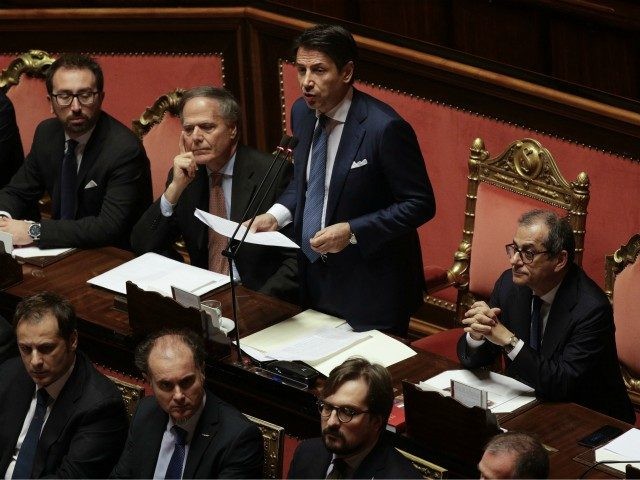ROME (AP) — After a raucous marathon session, the Italian Senate early Sunday approved a national budget law that was tweaked after the European Union objected to plans by Italy’s populist government to satisfy expensive campaign promises with a large deficit.
The budget, which was revised by the government so the European Union wouldn’t trigger sanctions, faces a Dec. 31 deadline for final approval in the lower Chamber of Deputies.
Deputy Premier Luigi Di Maio, who heads the euroskeptic 5-Star Movement, assured supporters via Facebook that funding in the 2019 budget would allow the coalition government to fulfill its pledges early in the year. They include rolling back pension changes and guaranteeing a minimum income for jobless or underemployed Italians.
“There are things that should make us proud,” Di Maio said a few hours after Parliament’s upper chamber endorsed the revised budget law at 3 a.m. with a 167-78 vote. Three senators abstained and dozens weren’t present for the vote.
The budget also incorporates the promise by Di Maio’s fellow deputy premier, Matteo Salvini of the “Italians First” League party, to enable Italians to retire at younger ages.
The government’s budget isn’t “based on philosophy or on finance, but regards everyday lives,” Salvini said.
Both leaders want to keep supporters happy, ahead of European Parliament elections in spring 2019.
The 5-Star Movement triumphed in this year’s election thanks in large part to votes from the south, where unemployment among youth hits 50 percent. Di Maio promised a minimum income of up to 780 euros (nearly 900 dollars) a month to those who agreed to look for work and undergo job training.
The revised budget has significantly less funding earmarked for the guaranteed income and eased pension rules than the amount in the version Italy first submitted to Brussels. But the costs are sizeable enough that Premier Giuseppe Conte’s government has proposed new revenue sources to cover them.
The measures include taxes on higher-end, less energy efficient cars, on digital services, and on nonprofit groups, as well as slashing pensions that surpass 100,000 euros ($114,000) a year.
Other levies include charging day-trippers to Venice a few euros and a 100-euro tax for amateur truffle hunters whose finds aren’t worth more than 7,000 euros (about $8,000) on the market, Italian newspapers reported Sunday.
The government also is counting on money from selling little used state real estate and from a tax amnesty that would allow delinquent taxpayers to wipe the slate clean by paying a fraction of what they owe.
Opposition leaders on both the left and the right blasted the government’s strategy as short on investments to revive Italy’s struggling economy.
The government is relying on “taxes, amnesties, without investments or an idea for the future, and is leading Italy into a blind alley, very dangerous for all,” Lazio region Gov. Nicola Zingaretti, who wants to be the next head of the opposition Democratic Party.

COMMENTS
Please let us know if you're having issues with commenting.